June 8, 2022 •
Wisconsin Governor Calls Special Session
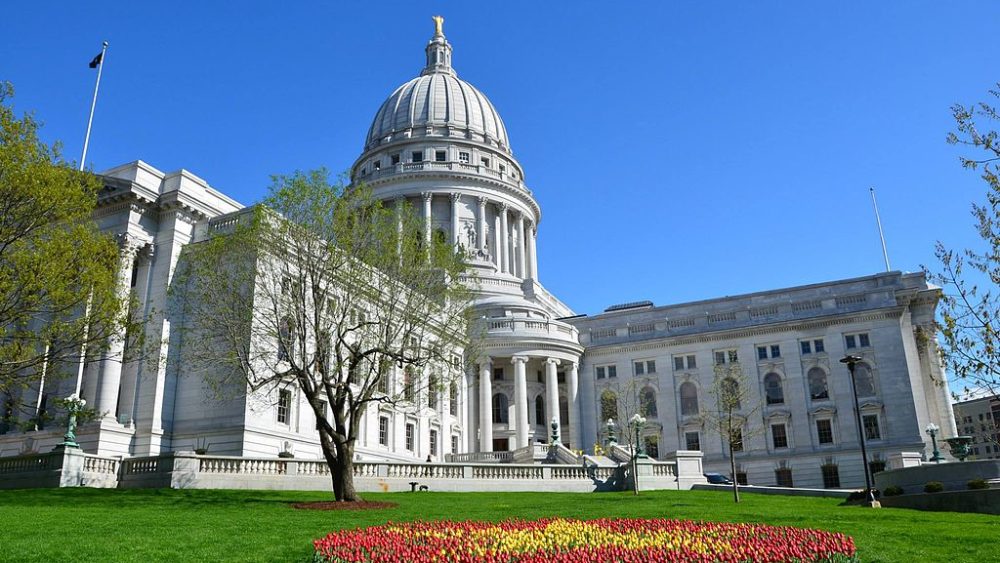
Wisconsin State Capitol Building
Wisconsin Gov. Tony Evers signed Executive Order 168 calling for a special session of the Legislature to begin Wednesday, June 22. Evers wants lawmakers to take up legislation to repeal Wisconsin’s criminal abortion ban.
Wisconsin Gov. Tony Evers signed Executive Order 168 calling for a special session of the Legislature to begin Wednesday, June 22.
Evers wants lawmakers to take up legislation to repeal Wisconsin’s criminal abortion ban.
September 10, 2021 •
Biden EO: Federal Contractors and Sub-Contractors Must Follow Federal COVID-19 Safety Guidance
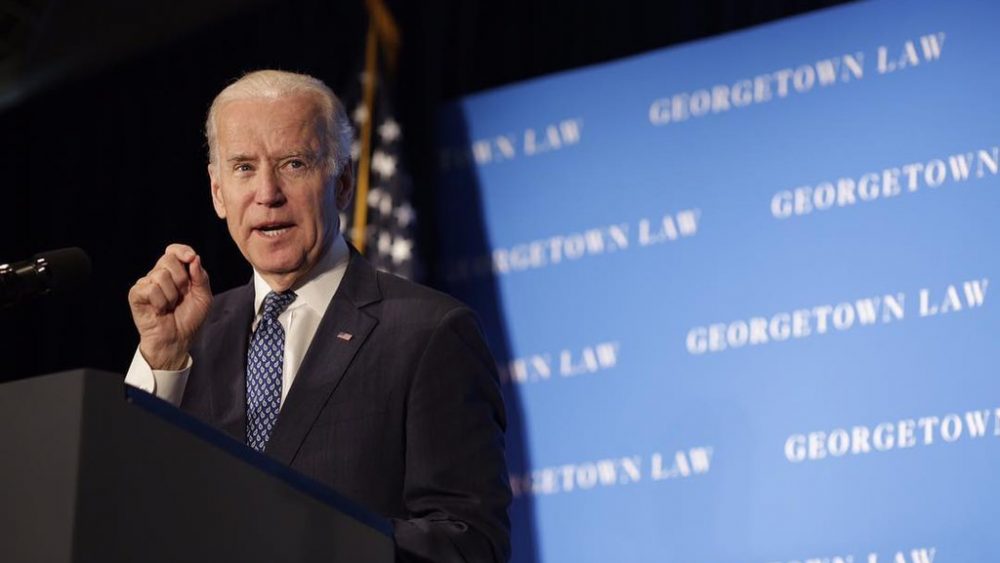
Joe Biden - by The White House, Public domain
On September 9, President Joseph R. Biden Jr. signed two executive orders dealing with COVID-19: one requiring mandatory vaccinations for all federal employees and another requiring federal contractors and subcontractors to do the same. Biden, in a televised speech about […]
On September 9, President Joseph R. Biden Jr. signed two executive orders dealing with COVID-19: one requiring mandatory vaccinations for all federal employees and another requiring federal contractors and subcontractors to do the same. Biden, in a televised speech about the orders, said the first executive order “will now require all executive branch federal employees to be vaccinated — all. And I’ve signed another executive order that will require federal contractors to do the same.”
The order concerning contractors requires executive departments and agencies, to the extent permitted by law, ensure that contracts and contract-like instruments include a clause that the contractor and any subcontractors (at any tier) must incorporate into lower-tier subcontracts. The clause must specify that a contractor or subcontractor must, for the duration of the contract, comply with all guidance for contractor or subcontractor workplace locations published by the Safer Federal Workforce Task Force. By September 24, 2021, the Safer Federal Workforce Task Force will, as part of its issuance of Task Force Guidance, provide definitions of relevant terms for contractors and subcontractors, explanations of protocols required of contractors and subcontractors to comply with workplace safety guidance, and any exceptions to Task Force Guidance that apply to contractor and subcontractor workplace locations and individuals in those locations working on or in connection with a federal government contract.
With certain exceptions, this order applies to any new contract; new contract-like instrument; new solicitation for a contract or contract-like instrument; extension or renewal of an existing contract or contract-like instrument; and exercise of an option on an existing contract or contract-like instrument.
The order does not apply to grants, contracts or agreements with Indian Tribes under the Indian Self-Determination and Education Assistance Act, contracts or subcontracts whose value is equal to or less than the simplified acquisition threshold, employees who perform work outside the United States, and subcontracts solely for the provision of products.
The order states its purpose is “to promote economy and efficiency in procurement by contracting with sources that provide adequate COVID-19 safeguards for their workforce.”
The order is effective immediately and applies to new contracts exercised, on or after October 15, 2021, with some exceptions.
April 29, 2021 •
President Signs Executive Order Increasing Minimum Wage for Employees of Federal Contractors

Joe Biden - by The White House, Public domain
On April 27, President Joseph R. Biden signed an executive order requiring federal contractors to pay $15 per hour for employees working on or in connection with a federal government contract. Beginning January 30, 2022, all federal agencies are required […]
On April 27, President Joseph R. Biden signed an executive order requiring federal contractors to pay $15 per hour for employees working on or in connection with a federal government contract.
Beginning January 30, 2022, all federal agencies are required to incorporate a $15 minimum wage in new contract solicitations. By March 30, 2022, all agencies will need to implement the minimum wage into new contracts. Federal agencies are also directed to implement the higher wage into existing contracts when the parties exercise their option to extend such contracts.
Contractors and subcontractors must certify they will meet this condition requiring the minimum wage. This certification is a condition of payment to the contractors from the government.
The order applies, with certain exceptions, to any new contract; new contract-like instrument; new solicitation; extension or renewal of an existing contract or contract-like instrument; or exercise of an option on an existing contract or contract-like instrument. This order does not apply to grants; contracts, contract-like instruments, or certain specific type of agreements with Indian Tribes.
Starting January 1, 2023, the minimum wage will be adjusted annually, but not lowered, by the U.S. secretary of labor based on a consumer price index formula and rounded to the nearest multiple of $0.05. For tipped workers, the minimum wage mandated by the order is $10.50 per hour beginning January 30, 2022. Beginning January 1, 2023, tipped workers must receive 85% of the wage rate in effect for non-tipped employees, rounded to the nearest multiple of $0.05. Then beginning January 1, 2024, and for each subsequent year, tipped workers must receive 100% of the wage received by non-tipped worker, eliminating the difference between the type of workers. Adjustments must be considered by employers of tipped workers who do not receive a sufficient additional amount on account of tips to equal to the minimum wage of non-tipped workers.
If a state or municipality has a higher minimum wage, the Executive Order does not excuse noncompliance with the laws requiring the higher wage. The secretary of labor is ordered to issue regulations by November 24, implementing this order.
January 21, 2021 •
President Biden Issues Ethics Executive Order

Joe Biden - by The White House, Public domain
On January 20, President Joseph R. Biden signed an Executive Order mandating enhanced ethics rules for executive branch appointees. “Executive Order on Ethic Commitments by Executive Branch Personnel” requires new appointees sign and be contractually committed to the ethics pledge […]
On January 20, President Joseph R. Biden signed an Executive Order mandating enhanced ethics rules for executive branch appointees. “Executive Order on Ethic Commitments by Executive Branch Personnel” requires new appointees sign and be contractually committed to the ethics pledge outlined in the order.
Appointees are prohibited from accepting gifts, with limited exceptions, from registered lobbyists and lobbying organizations for the duration of their service as appointees.
Appointees are also prohibited from participating in matters involving specific parties directly and substantially related to a former employer for two years after the date of appointment. Federal lobbyists and individuals registered under the Foreign Agents Registration Act may not seek or accept employment with any executive agency with respect to which he or she lobbied within the two years before the date of the appointment. The order also prohibits certain golden parachutes from former employers and includes a general two-year prohibition on lobbying after leaving a position.
Covered appointees include every full-time, non-career Presidential or Vice-Presidential appointee, non-career appointees in the Senior Executive Service, and appointees to certain positions excepted from the competitive service. It does not include any person appointed as a member of the Senior Foreign Service or solely as a uniformed service commissioned officer.
January 20, 2021 •
Trump Revokes Executive Order Concerning Ethics for Appointees
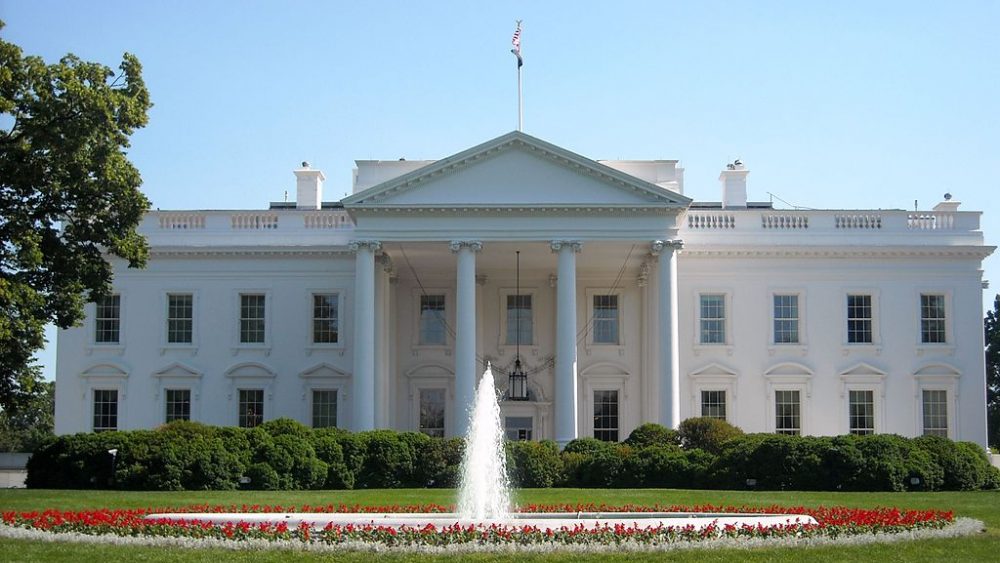
The White House - AgnosticPreachersKid
On his last full day in office, President Trump revoked an executive order concerning governmental ethics and, in effect, removed barriers for former officials to lobby the United States government immediately. On January 19, President Trump signed an Executive Order […]
On his last full day in office, President Trump revoked an executive order concerning governmental ethics and, in effect, removed barriers for former officials to lobby the United States government immediately. On January 19, President Trump signed an Executive Order fully revoking his prior Executive Order from 2017, which mandated ethic commitments for executive branch appointees.
On January 28, 2017, President Donald J. Trump signed Executive Order 13770, Ethics Commitments by Executive Branch Appointees, which prohibited appointees of the Executive Branch from lobbying the agency they were appointed to serve for five years after leaving office. Additionally, they would be permanently prohibited from engaging on behalf of any foreign government or foreign political party if it would require them to register under the Foreign Agents Registration Act.
The executive order is effective at noon when President-elect Joe Biden is sworn into office. Those prohibitions will no longer exist under President Trump’s 2017 Executive Order. The early order also prohibited appointees from accepting gifts, with limited exceptions, from registered lobbyists and lobbying organizations for the duration of their service as appointees. Also, registered lobbyists appointed to an executive agency could not participate in matters in which they lobbied for two years after the date of their appointment.
This 2017 Executive Order had superseded and revoked a similar Executive Order signed by former President Barack Obama in 2009.
April 27, 2020 •
New York Governor Reschedules June Special Elections
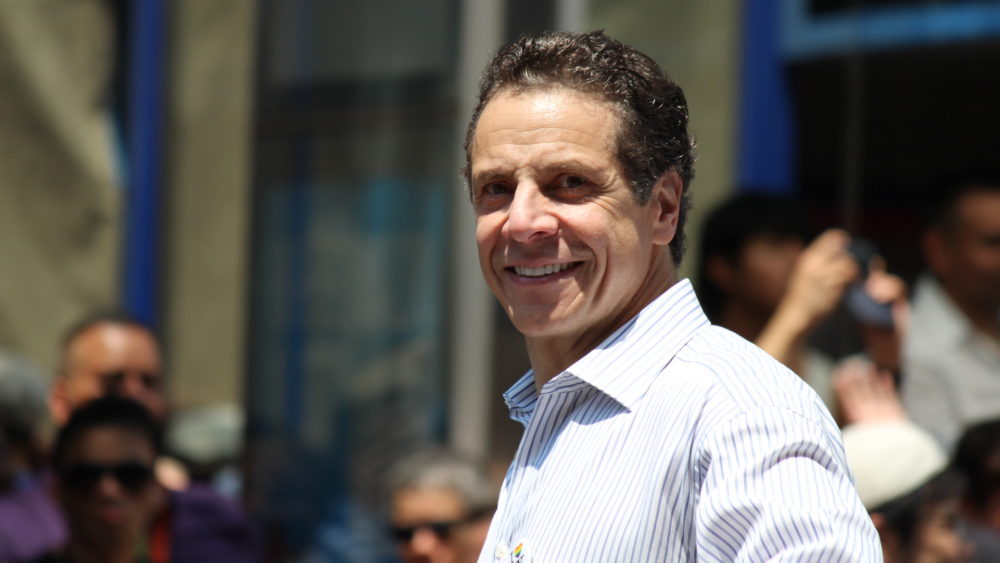
New York Gov. Andrew Cuomo - Shinya Suzuki
On April 24, Gov. Andrew Cuomo issued Executive Order 202.23 to reschedule state assembly and senate special elections. The elections now move from June 23 to November 3 due to the ongoing COVID-19 state of emergency. Additionally rescheduled to the […]
On April 24, Gov. Andrew Cuomo issued Executive Order 202.23 to reschedule state assembly and senate special elections.
The elections now move from June 23 to November 3 due to the ongoing COVID-19 state of emergency.
Additionally rescheduled to the same day as the general election, are special elections for the 50th Senate District and the 12th, 31st, and 136th Assembly Districts.
The executive order also reschedules a special election for Queens Borough President from June 23 to November 3.
Gov. Steve Bullock announced he will sign an executive order to further Montana’s goal of shedding light on dark money spending in elections. The executive order applies to new contracts for goods over $50,000 and new services contracts over $25,000 […]
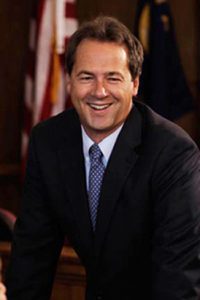 Gov. Steve Bullock announced he will sign an executive order to further Montana’s goal of shedding light on dark money spending in elections.
Gov. Steve Bullock announced he will sign an executive order to further Montana’s goal of shedding light on dark money spending in elections.
The executive order applies to new contracts for goods over $50,000 and new services contracts over $25,000 and requires government contractors who have spent more than $2,500 in the past two years in elections to disclose their donations.
The executive order aims to shed light on contributions not otherwise required to be disclosed.
Gov. Bullock will sign the executive order into law on June 8, 2018.
President Trump signed an executive order today for the purpose of allowing religious institutions to engage more directly in political activity without losing their tax-exempt status. Federal law prohibits tax-exempt religious and charitable institutions from specifically supporting, opposing, or endorsing […]
 President Trump signed an executive order today for the purpose of allowing religious institutions to engage more directly in political activity without losing their tax-exempt status.
President Trump signed an executive order today for the purpose of allowing religious institutions to engage more directly in political activity without losing their tax-exempt status.
Federal law prohibits tax-exempt religious and charitable institutions from specifically supporting, opposing, or endorsing political candidates or risk losing their tax-exempt status. Today’s order, named the Presidential Executive Order Promoting Free Speech and Religious Liberty, does not address charitable institutions covered under the same federal law.
The executive order directs the Department of the Treasury to “not take any adverse action against any individual, house of worship, or other religious organization on the basis that such individual or organization speaks or has spoken about moral or political issues from a religious perspective, where speech of similar character has, consistent with law, not ordinarily been treated as participation or intervention in a political campaign on behalf of (or in opposition to) a candidate for public office by the Department of the Treasury.” The order defines “adverse action” as “the imposition of any tax or tax penalty; the delay or denial of tax-exempt status; the disallowance of tax deductions for contributions made to entities exempted from taxation under section 501(c)(3) of title 26, United States Code; or any other action that makes unavailable or denies any tax deduction, exemption, credit, or benefit.”
Additionally, the order directs the Secretary of the Treasury, the Secretary of Labor, and the Secretary of Health and Human Services to “consider issuing amended regulations, consistent with applicable law, to address conscience-based objections to the preventive-care mandate promulgated under” the Affordable Care Act.
May 12, 2016 •
Columbus Mayor Signs Executive Order on Ethics
Columbus Mayor Andrew Ginther signed Executive Order 2016-01 on Tuesday, May 10, establishing ethics guidelines for public officials. Effective immediately, public officials and employees may not solicit or accept gifts or employment from anyone doing business with the city. They […]
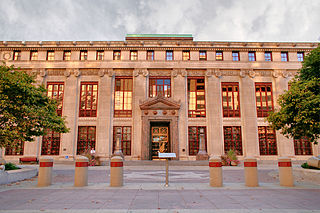 Columbus Mayor Andrew Ginther signed Executive Order 2016-01 on Tuesday, May 10, establishing ethics guidelines for public officials.
Columbus Mayor Andrew Ginther signed Executive Order 2016-01 on Tuesday, May 10, establishing ethics guidelines for public officials.
Effective immediately, public officials and employees may not solicit or accept gifts or employment from anyone doing business with the city. They also must wait at least one year after leaving public service before representing any person or entity before a department, board, or commission with respect to a matter they personally participated in while serving with the city.
Designated officials and employees must also file financial disclosure statements each year. The statements must include a description of each gift, or aggregate of gifts, exceeding $75 from certain sources during the previous calendar year.
Ginther believes the order will help to improve public opinion of City Hall.
January 20, 2016 •
NYT: President “Seriously Considering” Requiring Disclosure of Political Contributions by Federal Contractors
President Obama could soon issue an executive order requiring federal contractors to disclose political campaign contributions, according to the New York Times. On January 19, White House officials said the president is “seriously considering” the order, as reported by the […]
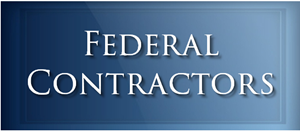 President Obama could soon issue an executive order requiring federal contractors to disclose political campaign contributions, according to the New York Times. On January 19, White House officials said the president is “seriously considering” the order, as reported by the paper. The order has been pushed by many outside groups and by Democratic members of congress, who have in the past, and as recently as January 7th, presented the president with letters urging executive action.
President Obama could soon issue an executive order requiring federal contractors to disclose political campaign contributions, according to the New York Times. On January 19, White House officials said the president is “seriously considering” the order, as reported by the paper. The order has been pushed by many outside groups and by Democratic members of congress, who have in the past, and as recently as January 7th, presented the president with letters urging executive action.
Those opposed to an executive order argue, among other things, disclosure requirements encroach on free speech and are politically motivated. “The real goal of the disclosure proponents is to harass, intimidate and silence those with whom they disagree,” Blair Latoff Holmes, a spokeswoman for the U.S. Chamber of Commerce, is quoted as saying in the Times.
September 9, 2015 •
Obama Executive Order: Sick Leave for Federal Contract Workers
President Obama marked Labor Day by signing an Executive Order requiring federal contractors to offer their employees up to seven days of paid sick leave per year. The order also allows employees to use paid sick leave to care for […]
 President Obama marked Labor Day by signing an Executive Order requiring federal contractors to offer their employees up to seven days of paid sick leave per year. The order also allows employees to use paid sick leave to care for themselves, a family member, a domestic partner, or another loved one, and grants leave for absences resulting from domestic violence, sexual assault, or stalking, according to a White House press release.
President Obama marked Labor Day by signing an Executive Order requiring federal contractors to offer their employees up to seven days of paid sick leave per year. The order also allows employees to use paid sick leave to care for themselves, a family member, a domestic partner, or another loved one, and grants leave for absences resulting from domestic violence, sexual assault, or stalking, according to a White House press release.
The While House hopes the Executive Order will set a standard prodding “lawmakers, private employers, and state and local governments to expand their leave policies,” according to the New York Times. The order’s requirements will take effect with new contracts starting in 2017.
July 22, 2014 •
Presidential Executive Order Prohibits Federal Contractors from Discriminating Against LGBT Employees
On July 21, President Obama signed an executive order prohibiting federal contractors from discriminating against lesbian, gay, bisexual, and transgender (LGBT) employees. The order also prohibits discrimination based on gender identity in federal employment. The White House press release states, […]
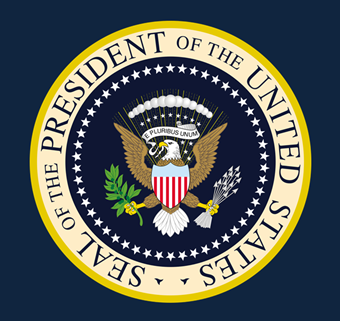 On July 21, President Obama signed an executive order prohibiting federal contractors from discriminating against lesbian, gay, bisexual, and transgender (LGBT) employees. The order also prohibits discrimination based on gender identity in federal employment.
On July 21, President Obama signed an executive order prohibiting federal contractors from discriminating against lesbian, gay, bisexual, and transgender (LGBT) employees. The order also prohibits discrimination based on gender identity in federal employment.
The White House press release states, “No current federal law adequately protects [LGBT] workers from employment discrimination. … At a critical time for our nation’s economy, we need all of our workers to be focused on making the most of their talent, skill, and ingenuity, rather than worrying about losing their job due to discrimination.”
The order amends two prior executive orders from the 1960s, issued by Presidents Johnson and Nixon, prohibiting discrimination based on “race, color, religion, sex, or national origin.”
September 26, 2012 •
Executive Order Against Human Trafficking in Federal Contracts
Signed September 25
 President Obama has signed an Executive Order “to ensure that taxpayer dollars do not contribute to trafficking in persons.”
President Obama has signed an Executive Order “to ensure that taxpayer dollars do not contribute to trafficking in persons.”
The Executive Order, “Strengthening Protections Against Trafficking In Persons In Federal Contracts,” signed yesterday, orders the Federal Acquisition Regulatory (FAR) Council to amend its regulations and implement specific requirements of federal contractors.
For example:
- Vendors will be required to agree to cooperate fully in providing reasonable access to allow audits, investigations, or other actions to ensure compliance;
- Contractors will be prohibited from charging employees recruitment fees;
- Contractors will be prohibited from destroying, concealing, and confiscating an employee’s identity documents, such as passports or drivers’ licenses; and
- Contracting officers will have a duty to notify the government if they become aware of any activities concerning the use of forced labor, trafficking in persons, and other specified illegal activities.
While the order is effective immediately, it will apply to solicitations issued after the FAR Council makes its rules. FAR has six months to realize the regulations.
State and Federal Communications, Inc. provides research and consulting services for government relations professionals on lobbying laws, procurement lobbying laws, political contribution laws in the United States and Canada. Learn more by visiting stateandfed.com.

